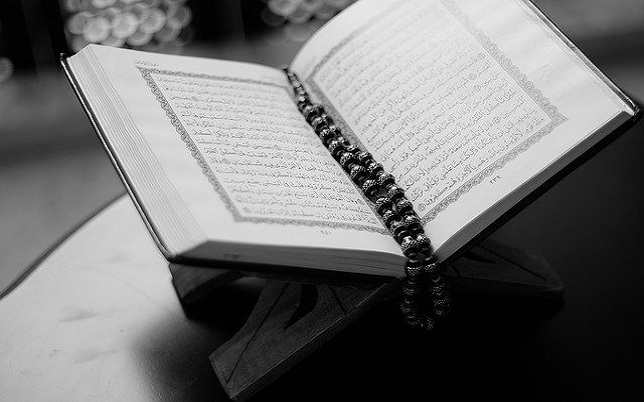Sultan Alauddin Khilji, one of the greatest Muslim rulers of India, was a great admirer of Sufi Saint, Hazrat Nizamuddin Aulia. On several occasions, he sought the Saint’s blessings for his difficult military campaigns in Southern India and every time his armies came out with flying colours.
On the conquest of Warangal,the Sultan sent a purse of 500 gold sovereigns to Hazrat Nizamuddin Aulia, which the later forthwith gave to a Khorasani ‘dervish‘, who happened to be with him at the moment.
The Sultan detailed his two sons, Khizr Khan and Shadi Khan to serve the Saint and be always at his beck and call.
The Sultan was very anxious to see the Saint personally and once sought his permission to present himself to him. But Hazrat Nizamuddin, who shunned the society of monarchs, declined to oblige him and sent him a message:
“I have two doors in my house. If the Sultan enters the house through the front door, I shall leave it by the back door”.
Contents
Initial Life of Hazrat Nizamuddin Auliya
Syed Muhammad ibn Syed Ahmad, later known as Nizamuddin Aulia Mahboob Elahi (the beloved of God), Sultan-ul-Mashaikh (King of Saints) was born in Badayun (D.P.) in 634 Hijri. Migrating from Bukhara, his ancestors arrived at Lahore and later settled down at Badayun.
His father died, when he was only five years old. He was brought up by his illustrious and saintly mother. He received his early education from Maulana Alauddin. Later he went to Delhi along with his mother and received a thorough education from Maulana Shamsuddin and Maulana Kamaluddin Zahid.
Hazrat Nizamuddin Aulia arrived in the presence of his spiritual teacher, Hazrat Baba Fariduddin Ganj Shakar on 15 Rajab,655 Hijri and remained with him till 3 Rabiul-Awwal 656 Hijri.
Training of Hazrat Nizmudin Auliya
Hazrat Nizamuddin along with his other companions, passed an extremely rigorous life at the ‘Khanqah‘ (monastery) of Hazrat Ganj Shakar at Ajodhan (Pakpattan).
The inmates of the Khanqah helped to prepare their daily meal. Maulana Badruddin Ishaq brought firewood. Another dervish, Shaikh Jamaluddin Hanswi brought a wild fruit, ‘Vela’, from the forest which was boiled into water and taken as a drink by the inmates of the monastery.
One day, no salt was available. Nizamuddin bought one piece of salt from a grocer’s shop on credit. When the inmates of the monastery together with their spiritual Teacher, Fariduddin Ganj Shakar sat down for their meal, the latter felt reluctant to take the food.
“I smell extravagance from this food”, he said.
On enquiry he was told that the salt was obtained on credit from the grocer’s shop. On this information, he observed that it was better for a dervish to die rather than obtain anything on credit. From that day Nizamuddin resolved never to take anything on credit.
Hazart Nizamuddin Auliya comes to Delhi
On completing his strenuous training from his spiritual teacher, Fariduddin Ganj Shakar he settled down at Ghiaspura near Delhi.
In the beginning, he passed a very hard life. Sometimes days passed without Nizamuddin and his family having anything to appease their hunger. On such occasions, his pious mother declared that they were the guests of God. Nizamuddin felt an immense inner pleasure at such moments.
Once, the King of Delhi, Jalaluddin Khilji, requested Nizamuddin to accept a few neighbouring villages for meeting the expenses of his Khanqah, but he refused to accept any such gift.
Impact of Nizamuddin Auliya on Royal People
The teachings of Nizamuddin Aulia had a sobering effect on the pleasure loving society of the Imperial city of Delhi. Persons attached to the royal court who reveled in pleasure, abstained from it.
A number of such dignitaries, including some members of the royal family were attracted towards the Saint of Ghiaspura and became his disciples. Their life underwent a strange transformation. Two of these were the sons of Sultan Alauddin Khilji-Prince Khizr Khan and Shadi Khan.
But the greatest of Nizamuddin’s disciples was Ameer Khusroe, a versatile genius-poet, musician, writer and mystic-greatest master of fine arts that the thousand years of Muslim rule in India has produced.
Khusroe, a highly respected member of the royal court of Delhi, was a great admirer of his spiritual teacher, Nizamuddin Aulia. In fact he was always prepared to sacrifice his all for his sake.
Devotion of Ameer Khusroe for Hazrat Nizamuddin
Once a supplicant came to Nizamuddin and begged for alms. The Saint had nothing with him. He gave his wooden shoes to the supplicant, who went away from there satisfied.
The supplicant had hardly gone out of Delhi, when Ameer Khusroe, who was returning to the Capital along with the King, met him, and said to him:
“I feel the sweet smell of my spiritual teacher from your body. Have you any token from him?”.
The supplicant took out the wooden shoes of Nizamuddin from his cloak. Ameer Khursroe kissed those shoes and cried out:
“Do you want to sell these?”
Ameer Khusroe had half a million Tankas (silver coins) with him which the Sultan had awarded him in appreciation of his poem. Khusroe gave the entire money in lieu of his teacher’s shoes.
Appearing before Hazrat Nizamuddin, with his shoes upon his head, Khusroe observed:
“The dervish agreed to accept five lakh tunkas as the price of the shoes. Had he asked for my entire property and even my life as the price of it,. I would have willingly given these to him.”
Hazrat Nizamuddin Auliya’s Aversion of Kings
Nizamuddin shunned the society of Kings. Sultan Ghiasuddin Khilji was very anxious to meet him and requested him through Ameer Khusroe to grant him an interview but the latter declined to oblige him. He also refused to see Sultan Alauddin Khilji.
Sultan Qutbuddin Mubarak Shah Khilji who ascended the throne of Delhi, after assassinating Khizr Khan and Shadi Khan, the favourite sons of Sultan Alauddin Khilji and the disciples of Nizamuddin Aulia, objected to his nobles visiting the Khanqah of the Saint.
He had become inimical towards the Saint and even ordered him to attend his Durbar. The Saint refused to obey the King’s order, adding: “I can see what is going to happen”. The same night the King was assassinated by one of his nobles named Khusroe Khan (not Ameer Khusroe).
Kindness of Hazrat Nizamuddin Auliya
Hazrat Nizamuddin Aulia was known for his piety and benevolence. He passed his nights in prayers and when he came out of his room in the morning his eyes were often swollen. He was accustomed to breaking his fast with a handful of coarse food.
He delivered his lectures after the morning prayers which the audience listened to with rapt attention. The audience felt as if they were listening the words of God which went straight into their hearts.
He was extremely kind to the poor and the needy, and always held himself in readiness to alleviate the suffering of those in distress. None had ever left his door disappointed and dissatisfied. Once he observed:
“Anyone who relates his sorrows to me makes me doubly sorrowful. It rends my heart. I deplore and pity those callous persons who see the miseries and sad plight of their brethren and yet do not help them”.
He never thought ill of any person and was forgiving and benevolent even to his enemies.
Jhajjoo, a resident of Ghiaspura, was instigated by certain mischief mongers to tease Hazrat Nizamuddin who never coaxed or reprimanded the miscreant for his misdeeds. His magnanimity and indulgence tended to win over Jhajjoo. When the latter died, Hazrat Nizamuddin led his funeral prayers.
Death of Hazrat Nizamuddin Auliya
The great Saint died full of years. Forty days before his death, he dreamed the Prophet showing anxiety to see him. He died on 18 Rabiul Awwal, 725 Hijri and was buried at Ghiaspura, now known as Nizamuddin (Delhi). His tomb was built by Sultan Muhammad Tughlaq of Delhi.
His lectures and anecdotes have been recorded in four books, namely
- Fawaidul Fawad
- Fazlul Fawad
- Rahatul-Muhibbeen and
- Siratul Aulia
The first book was compiled by Khwaja Hasan Sanjari. lt carries the lectures and aphorisms of his spiritual guide from 707 Hijri to 719 Hijri.
The last one deals with the life and achievements of mystic saints.
Amazing Events of From Hazrat Nizamuddin’s Life
The following few authentic anecdotes about the great Saint may be mentioned for the interest of the readers:
One droughty summer when the people of Delhi, languished under sizzling heat, some of Khwaja Sahib’s ardent disciples waited on him with the request to pray to God for rainfall.
He sardonically asked them if they actually needed it. And then he addressed a letter to an elderly Hindu grocer directing him to invoke God for early showers and bade his disciples to deliver it to him.
Getting the ‘letter’ the grocer reverently kissed it and then lifting his scales, he pronounced God’s name in all humility, and as he supplicated that ever since he started wielding it he never under-weighed any commodity sold to his customers there suddenly appeared a cloud no bigger than a man’s hand.
In a few moments the sky was overcast and the downpour came, inundating the town. As long as the grocer held aloft the scales, the downpour continued.
He asked his spiritual mentor’s disciples if it was enough, or they wanted more. On their saying that it was more than enough he gradually laid it down. Miraculously, simultaneously the rain ceased.
Thanking the grocer, the disciples left with their hearts brimming with devotional feelings for the great Khwaja.
On another occasion, some of his followers implored him to rid the town of mighty hordes of flies that had invaded it and plagued the people’s life.
Khwaja Sahib issued an order to the flies to leave the town forthwith. As soon as the order was pasted on the gates of the town, large swarms of flies started quitting the town till all of them disappeared.
Once, one of his devotees complained to him that his shoe in good condition had incidentally been replaced by someone’s worn out one at the Khwaja’s mosque.
The illustrious Saint advised his devotee to be of good cheer and to offer next day his morning prayers at Qutabuddin Aibek’s mosque where the shoe would be restored to him. The devotee did so. After the morning prayers, as he came to collect the worn out replaced shoe, he was utterly aghast to find that it had been replaced with his own new one.

